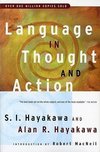
-
 Anglický jazyk
Anglický jazyk
A Wise Geek's Guide To Everything Volume 2
Autor: Michael Pollick
Author Michael Pollick returns with even more questions and answers in "A Wise Geek's Guide To Everything, Volume 2". From the elusive "Brown Note" to the short-term memory of goldfish, this collection covers many mysteries, myths, and realities. Do Goldfish... Viac o knihe
Na objednávku, dodanie 2-4 týždne
12.06 €
bežná cena: 13.40 €
O knihe
Author Michael Pollick returns with even more questions and answers in "A Wise Geek's Guide To Everything, Volume 2". From the elusive "Brown Note" to the short-term memory of goldfish, this collection covers many mysteries, myths, and realities. Do Goldfish Really Forget Everything After 3 Seconds? The myth that goldfish forget everything after three seconds is one of those delightful bits of trivia that has floated around for decades, often used to illustrate the concept of a short memory. But let's unpack this notion a little, shall we? First off, it's important to clarify that the three-second memory span is not just a quirky fact; it's a misconception that oversimplifies the cognitive abilities of these aquatic creatures. In reality, research has shown that goldfish possess a far more complex memory system than we give them credit for. Goldfish can actually remember things for weeks, even months. Studies have demonstrated that they can be trained to perform tasks, remember feeding times, and even recognize their owners. Imagine that! A creature often dismissed as simple-minded has the capability to learn and retain information. In one experiment, goldfish were trained to push a lever to receive food. After a week of training, even when the food was removed, they continued to push the lever, demonstrating that they retained the learned behavior. This challenges the stereotype of goldfish as mindless beings, swimming in circles, oblivious to their surroundings. The misconception likely stems from the way we observe them in aquariums. Their constant swimming and seemingly repetitive behavior can give the impression that they are not processing their environment. However, what we often overlook is their ability to form associations. For instance, if a goldfish is fed at a specific time every day, it learns to anticipate that feeding. It can even distinguish between different colors and shapes, showing that it can develop preferences and make decisions based on past experiences. Moreover, goldfish have been shown to possess spatial memory, which is the ability to remember the layout of their environment. In studies, they have successfully navigated mazes, demonstrating their capability to remember routes and find their way back to familiar locations. This spatial awareness is crucial for their survival in the wild, where they must navigate through complex environments filled with predators and obstacles. So, the idea that they can't remember anything is not just an oversimplification; it's a blatant misrepresentation of their cognitive abilities. Another aspect to consider is the emotional intelligence of goldfish. They exhibit signs of stress and can even recognize other fish. They can be social creatures, forming bonds with fellow goldfish and reacting to their behaviors. This social interaction suggests a level of awareness and memory that goes beyond mere instinct. They may not communicate in the way we do, but their interactions hint at a deeper understanding of their environment and companions. So, why does this myth persist? Perhaps it's because goldfish are often kept as pets in small tanks, which reduces our perception of their capabilities. When we see them in such limited environments, it's easy to project our own interpretations onto them, viewing them as simplistic beings. The truth is, they are far more sophisticated than we realize.
- Vydavateľstvo: Michael Pollick
- Rok vydania: 2024
- Formát: Paperback
- Rozmer: 216 x 140 mm
- Jazyk: Anglický jazyk
- ISBN: 9798227140296




 Nemecký jazyk
Nemecký jazyk 






